Revolutionizing Quality Assurance: Feindreh’s Success Story with ibg NDT Technology
A Case Study of Effective Integration of ibg’s Preventive Multi-Frequency Testing (iPMFT®) via Eddy Current for Feindreh’s Dowel Pins' Structure Evaluation.
Feindreh GmbH, a leading manufacturer of dowel pins, faced the challenge of ensuring high-quality standards in their products. With the increasing demand for dowel pins in various industries, the need for reliable testing and sorting mechanisms became paramount. Feindreh’s existing testing machine could not accur- ately identify parts with the correct hardness after heat treatment, particularly due to signal distortion caused by the notches on the surface. This posed a challenge for maintaining standard quality controls. This case study highlights Feindreh’s collaboration with ibg NDT Technology to implement preventive eddy current testing, significantly enhancing the quality assurance process.
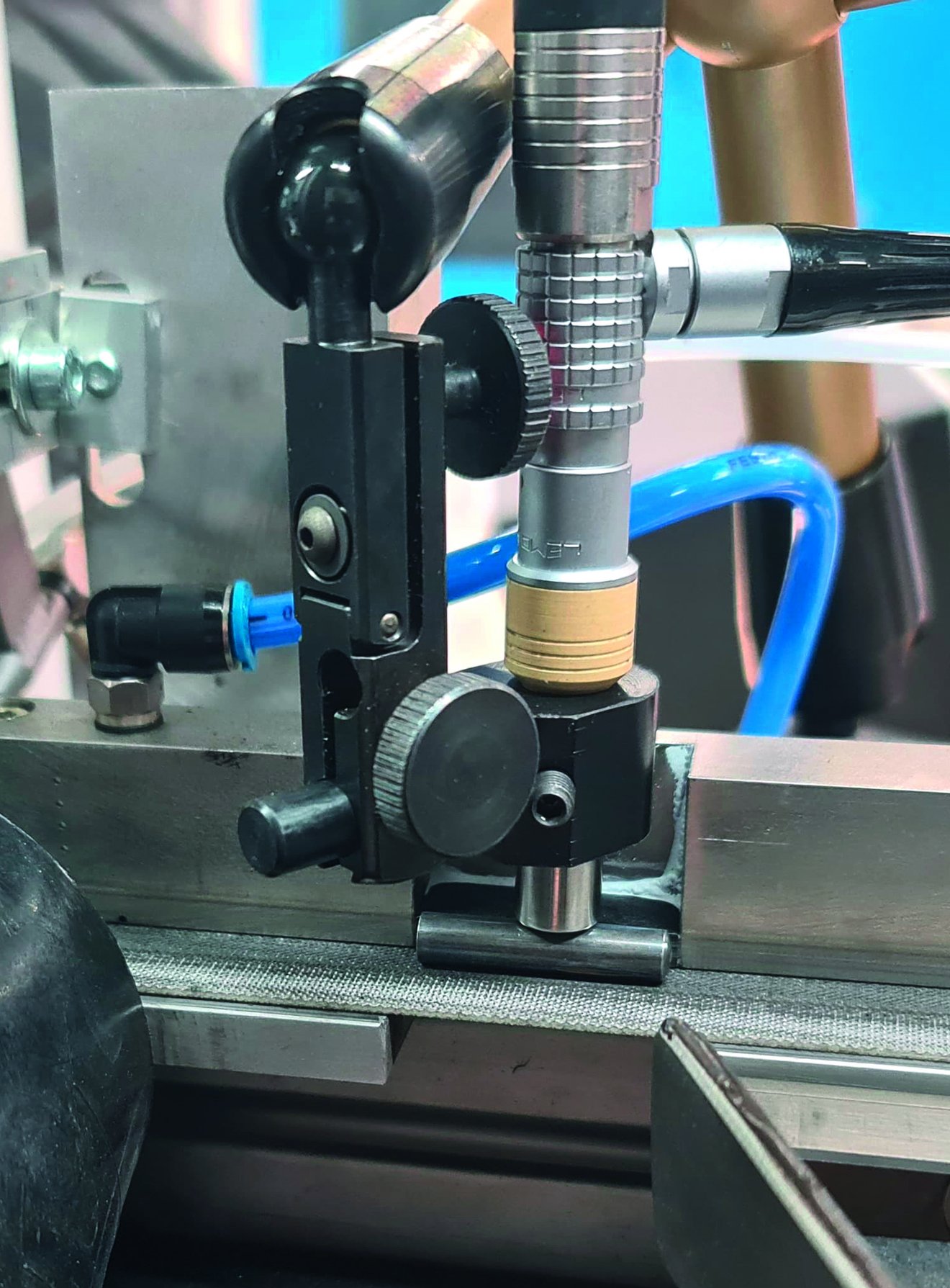
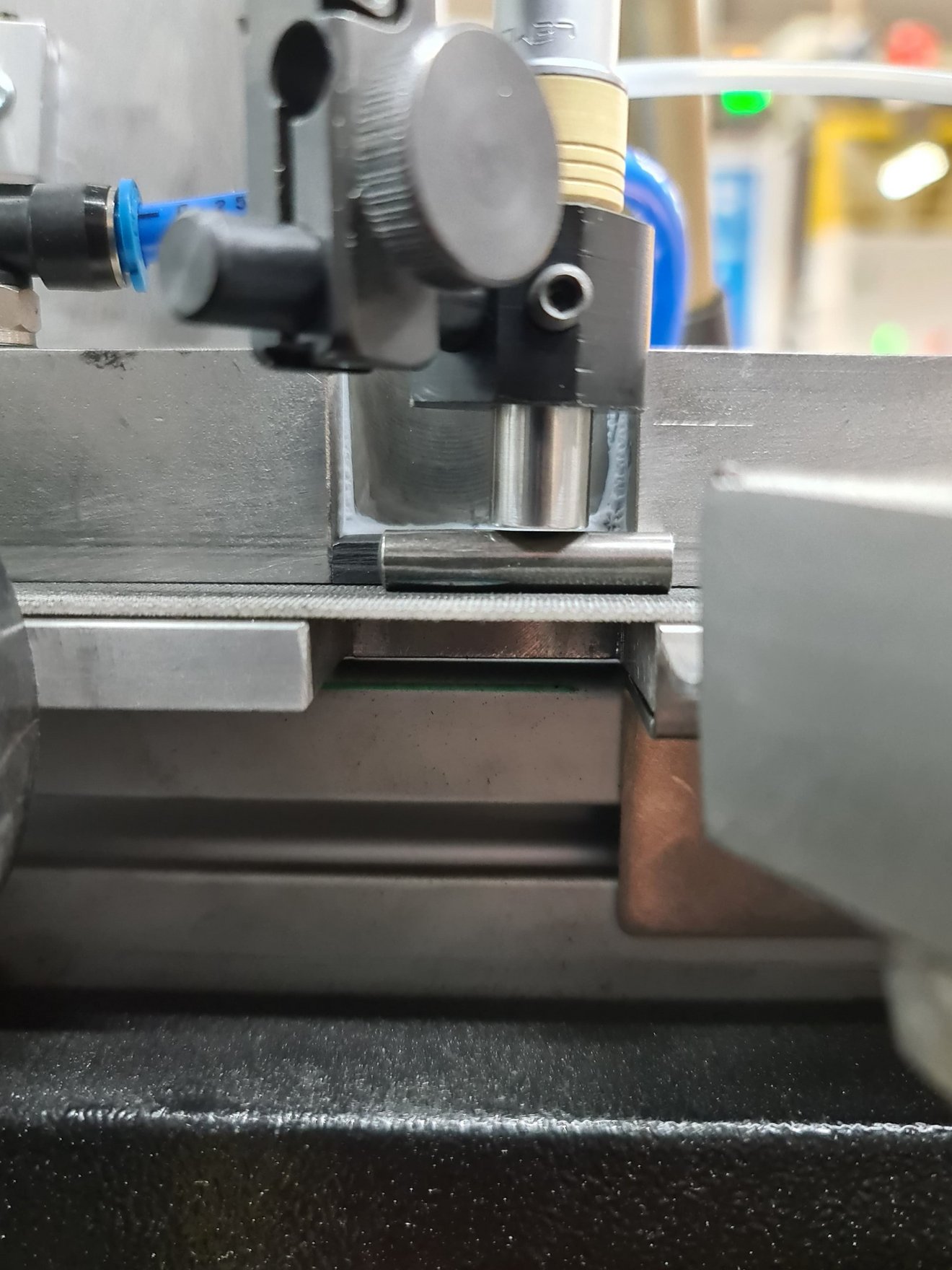
Figure 1. ibg’s structure probe positioned above the dowel pin by variable tool-holder.
Solution
Feindreh GmbH strategically partnered with ibg NDT Technology to develop a retrofit approach by integrating eddy current sensing capabilities into their existing testing machine. Unlike their previous testing instrument, ibg’s instrumentation could reliably identify the correct hardness of the pins regardless of their (notch) orientation below the probe. This solution involved incorporating ibg’s iPMFT® Technology, enabling preventive testing with high accuracy and speed. The compact and robust design of ibg’s structure probe allowed for easy installation, ensuring minimal disruption to ongoing operations. Additionally, the user-friendly interface of the ibg controller facilitated quick adoption by Feindreh’s quality assurance team and production staff.
ibg’s eddy current structure testing ensures the accuracy of heat treatment and microstructure evaluation.
This method is particularly critical for safety-related components like grooved fasteners and dowel pins, commonly used in machinery, plants, and equipment construction. This method employs a comparative sorting approach to distinguish between OK and NOK parts. It involves teaching the instrumentation to automatically establish tolerance zones based on known OK parts and then comparing the electromagnetic signals of the test samples against the reference parts.
Benefits
- Teaching the ibg system with good parts based on a minimum of 8 dowel pins.
- Handling complex designs: The solution works well even with complex designs and compensates for temperature drifts in the production environment via compensation probes.
- Machine learning capabilities enable the quality control team or trained operators to quickly set up similar parts and batches, enhancing production speed and flexibility.
- Cost-Efficiency: No costly mechanical changes were required for the upgrade, minimizing downtime and expenses.
- Enhanced Accuracy: The preventive testing approach with reference data from OK parts and a compensation coil system delivers 100% reliable results concerning a wide range of defect types, even with geometric notch variations.
- Flexibility: The instrument could store up to 250 different part types.
- Reliable test and sorting results, effective even under unpredicted difficulties in the heat treatment and other effects, impacting the structure of the pins.
- Peace of mind: The high-performing preventive technology offered by ibg instilled confidence in product quality, ensuring customer satisfaction.
Background
Feindreh is a premium manufacturer of dowel pins for a broad range of industries worldwide. Their production process requires sophisticated heat treatment processes followed by 100% testing and sorting of the metal structure of each pin. While a range of defects could already be found by their former testing machine, customers expect quality testing to go beyond this, addressing all the structural deviations preventively. One of the main challenges that Feindreh faced was the slight variations in the position of the notches under the sensor. Depending on whether the sensor was positioned directly above the notch or not, signals became distorted. This issue forced the former instrument with limited frequencies and no harmonic analysis to show a wider tolerance field. Unfortunately, some NOK parts could still fall within these tolerance fields, leading to unreliable testing and necessitating extra lab work. To overcome this problem, Feindreh opted for preventive testing by ibg. ibg’s solution, featuring eight fundamental frequencies, rapid frequency change, and Simultaneous Harmonic Analysis (iSHA® Technology), addressed the issue effectively within the required tact time.

The next hurdle was integrating this technology into the existing test machine. A smart retrofit solution was needed to match the existing mechanics and allow the new sensor to work seamlessly with the current machine control. Thanks to the compact and robust design of ibg’s probe and the integrated sensor and testing control, the system could use a free slot and capture the eddy current imprint of the dowel pins’ structure using eight fundamental frequencies with its 3rd and 5th harmonic waves simultaneously. This comprehensive analysis generated 24 represen-tations of the pin’s microstructure, enabling precise differentiation between NOK and OK parts. Narrow tolerance fields were established around individual signals, effectively eliminating false positives, and reducing false negatives.
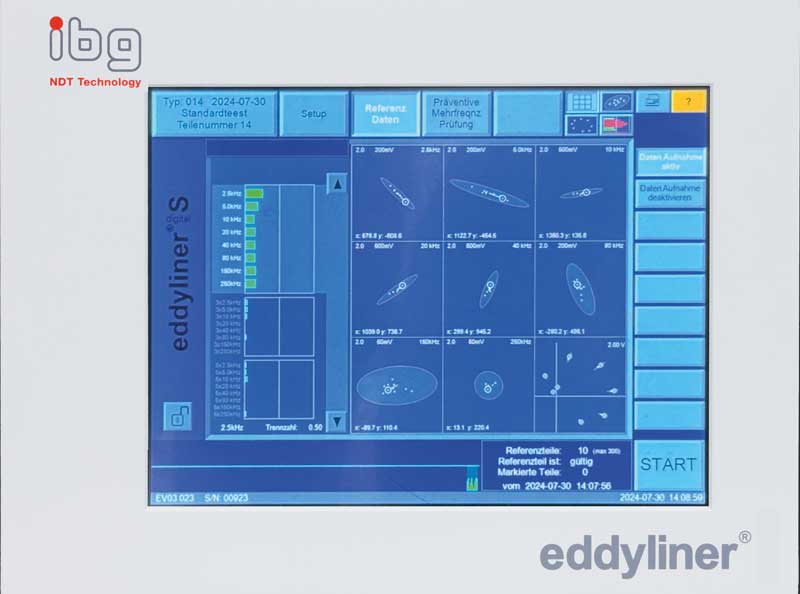
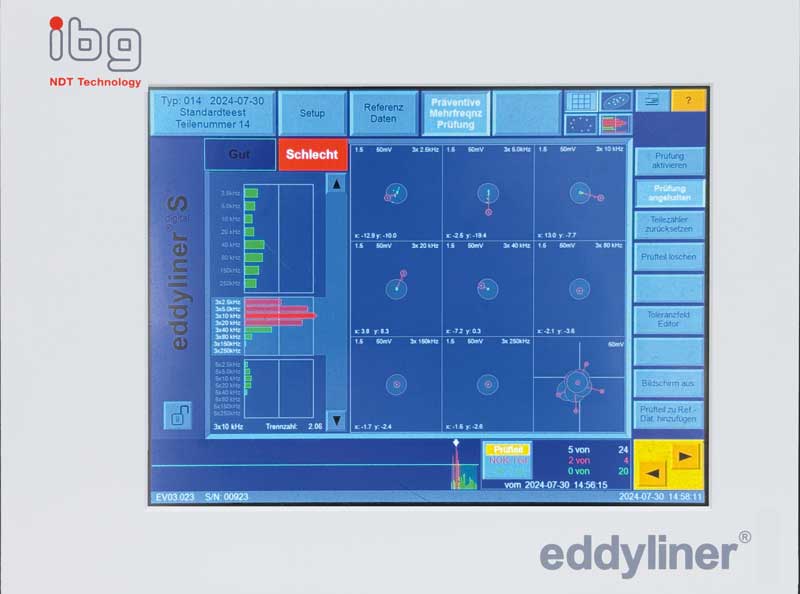
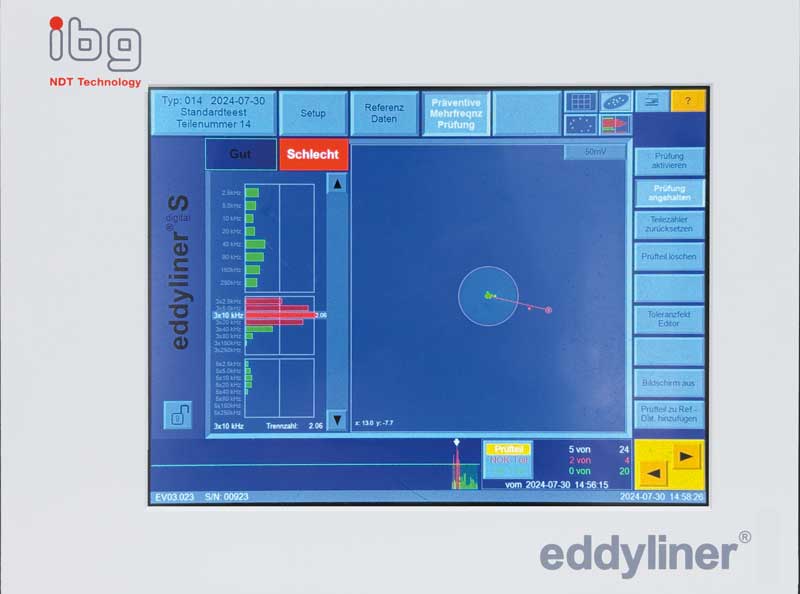
Figure 3. ibg eddyliner structure testing results, showing eight fundamental frequencies with their corresponding tolerance zones (a), and the detection of NOK parts in its 3rd harmonic with the highest separation figure (b), maxi-mum separation figure of 2.87 and its tolerance field (c).
Improvement
- Maintaining the tact time of the existing test machine.
- Compatible with the existing mechanical slots and housing of the machines.
- Ability to “teach” new pins internally, avoiding external service costs. Preventing costly lab work, saving time and resources.
- Consistent results without signal fluctuations and jitters, regardless of the pin’s notch position.
- Easy-to-operate.
- Ability to perform in both static and/or dynamic modes.
Conclusion
Through collaborative efforts and innovative non-destructive solutions, Feindreh successfully implemented ibg’s preventive eddy current testing, significantly enhancing the quality and reliability of their dowel pins.
This partnership leveraged the strengths of both companies, positioning Feindreh as a trusted provider of high-quality components and establishing ibg’s cutting-edge testing technologies as a reliable industry standard for quality assurance.
This case study showcases the power of teamwork, idea-sharing, and mutual trust of the two companies in achieving remarkable advancements and addressing challenges.
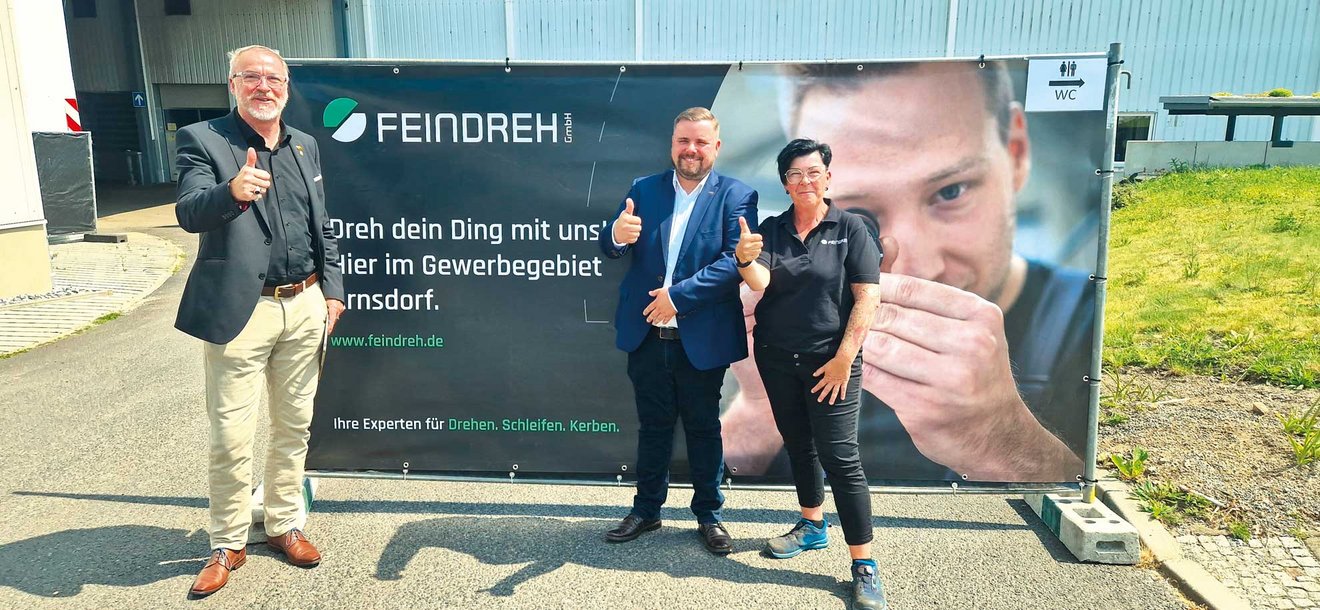
Contact Us

